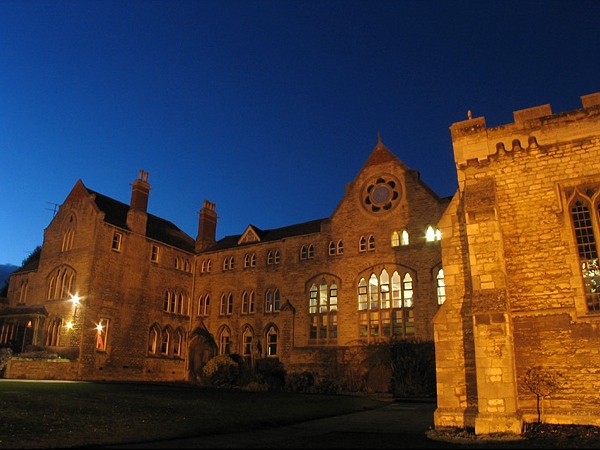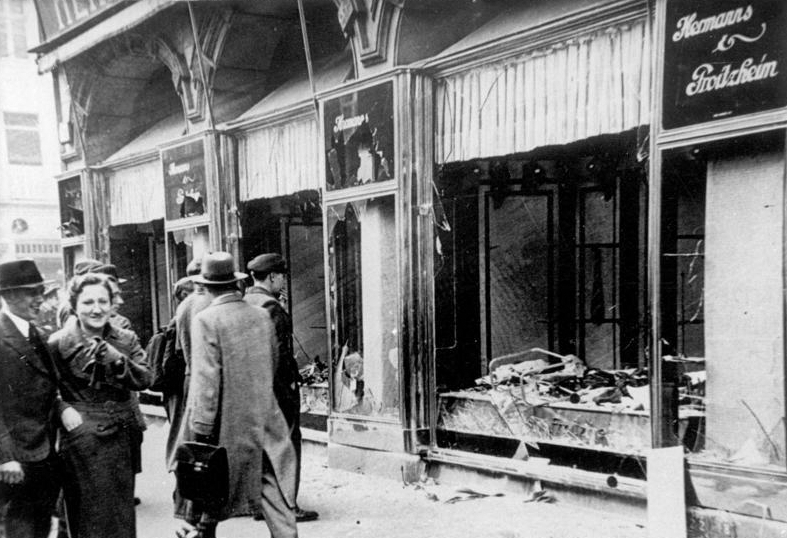|
Ödön Von Horváth
Edmund Josef von Horváth (9 December 1901, Sušak, Rijeka, Austria-Hungary – 1 June 1938, Paris France) was an Austro-Hungarian playwright and novelist who wrote in German, and went by the name of ''nom de guerre'' Ödön von Horváth. He was one of the most critically admired writers of his generation prior to his untimely death. He enjoyed a series of successes on the stage with socially poignant and romantic plays, including ''Revolte auf Côte 3018'' (1927), ''Sladek'' (1929), ''Italienische Nacht'' (1930), ''Hin und Her'' (1934) and ''Der Jüngste Tag'' (1937). His novels include ''Der ewige Spießer'' (1930), ''Ein Kind Unserer Zeit'' (1938) and ''Jugend ohne Gott'' (1938). Early life and education Ödön von Horváth was the eldest son of an Austro-Hungarian diplomat of Hungarian origin from Slavonia, Edmund (Ödön) Josef Horváth, and Maria Lulu Hermine (Prehnal) Horváth, who was from an Austro-Hungarian military family. From 1908, Ödön attended elementary school ... [...More Info...] [...Related Items...] OR: [Wikipedia] [Google] [Baidu] |
Sušak, Rijeka
Sušak (in Italian ''Sussak'') is a part of the city of Rijeka in Croatia, where it composes the eastern part of the city, separated from the city center by the Rječina river, which in former times served as an international border. Notable features of Sušak include the public beaches at Pećina and Glavanovo, along with the Tower Center shopping mall. History Under the Habsburg monarchy, Rijeka and the surrounding area technically belonged to the Hungarian half of the Monarchy. Sušak was a municipality separate from the city of Rijeka and since the nineteenth century it experienced faster urbanisation and population growth. In 1924, Rijeka belonged to the independent Free State of Fiume, which had been created four years earlier under the Treaty of Rapallo, but in the Treaty of Rome the Kingdom of Serbs, Croats, and Slovenes and Italy agreed to dissolve the free state. Instead Fiume was annexed to Italy as the Province of Fiume, and Sušak remained with the Kingdom of Serb ... [...More Info...] [...Related Items...] OR: [Wikipedia] [Google] [Baidu] |
Elena Langer
Elena Langer (born 1974 in Moscow) is a Russian-born British composer of opera and other contemporary classical music. Her work has been performed at the Royal Opera House, Zurich Opera, Carnegie Hall, Richard B. Fisher Center for the Performing Arts, Stanislavski and Nemirovich-Danchenko Moscow Academic Music Theatre, Shakespeare's Globe, Wigmore Hall, Opera national du Rhin, Strasbourg, and Milton Court, Barbican Centre. She studied piano and composition at the Gnessin State Musical College in Moscow and composition at the Moscow Conservatoire; in 1999 she moved to London and studied composition at the Royal College of Music (1999–2000) with Julian Anderson and the Royal Academy of Music (2001–03) with Simon Bainbridge. Career In 2002 Langer became the first Jerwood Composer in Association at the Almeida Theatre in London, writing the short operas ''Ariadne'' (premiered at the Almeida Opera Festival in 2002) and ''The Girl of Sand'' (2003), both settings of librettos by ... [...More Info...] [...Related Items...] OR: [Wikipedia] [Google] [Baidu] |
Figaro Läßt Sich Scheiden
''Figaro läßt sich scheiden'', op.40, (''Figaro Gets Divorced'') is an opera in two acts by Giselher Klebe based on the comedy of the same name by Ödön von Horváth. Klebe also wrote the libretto for this work. The work is a sequel to the Figaro plays of Pierre Beaumarchais. It follows the fortunes of some of the characters of ''The Marriage of Figaro'' during the period of the French Revolution. It premiered on 28 June 1963 at the Hamburg State Opera, when it was conducted by Leopold Ludwig. It was commissioned by Rolf Liebermann, then-director of the ''Staatsoper'' and also a composer. Another opera using elements of the von Horváth play is ''Figaro Gets a Divorce'' by Elena Langer, (libretto by David Pountney), premiered by Welsh National Opera in 2016. , Welsh National Opera website, accessed 19 March 2015. [...More Info...] [...Related Items...] OR: [Wikipedia] [Google] [Baidu] |
Opera
Opera is a form of theatre in which music is a fundamental component and dramatic roles are taken by singers. Such a "work" (the literal translation of the Italian word "opera") is typically a collaboration between a composer and a librettist and incorporates a number of the performing arts, such as acting, scenery, costume, and sometimes dance or ballet. The performance is typically given in an opera house, accompanied by an orchestra or smaller musical ensemble, which since the early 19th century has been led by a conductor. Although musical theatre is closely related to opera, the two are considered to be distinct from one another. Opera is a key part of the Western classical music tradition. Originally understood as an entirely sung piece, in contrast to a play with songs, opera has come to include numerous genres, including some that include spoken dialogue such as '' Singspiel'' and '' Opéra comique''. In traditional number opera, singers employ two styles of ... [...More Info...] [...Related Items...] OR: [Wikipedia] [Google] [Baidu] |
Libretto
A libretto (Italian for "booklet") is the text used in, or intended for, an extended musical work such as an opera, operetta, masque, oratorio, cantata or Musical theatre, musical. The term ''libretto'' is also sometimes used to refer to the text of major liturgical works, such as the Mass (liturgy), Mass, requiem and sacred cantata, or the story line of a ballet. ''Libretto'' (; plural ''libretti'' ), from Italian, is the diminutive of the word ''wiktionary:libro#Italian, libro'' ("book"). Sometimes other-language equivalents are used for libretti in that language, ''livret'' for French works, ''Textbuch'' for German and ''libreto'' for Spanish. A libretto is distinct from a synopsis or scenario of the plot, in that the libretto contains all the words and stage directions, while a synopsis summarizes the plot. Some ballet historians also use the word ''libretto'' to refer to the 15 to 40 page books which were on sale to 19th century ballet audiences in Paris and contained a ve ... [...More Info...] [...Related Items...] OR: [Wikipedia] [Google] [Baidu] |
Giselher Klebe
Giselher Wolfgang Klebe (28 June 19255 October 2009) was a German composer, and an academic teacher. He composed more than 140 works, among them 14 operas, all based on literary works, eight symphonies, 15 solo concerts, chamber music, piano works, and sacred music. Biography Giselher Klebe was born in Mannheim, Germany. He received musical tuition early in his life from his mother, the violinist Gertrud Klebe. The family relocated in 1932 to Munich, where his mother's sister, Melanie Michaelis, continued the training. His father's profession required a further relocation in 1936 to Rostock. Following the separation of his parents, Klebe moved with his mother and sister to Berlin. During 1938, the 13-year-old sketched his first compositions. In 1940, he began studies in violin, viola, and composition, supported by a grant from the city of Berlin. After serving his Reichsarbeitsdienst (labour service), Klebe was conscripted to military service as signalman. After the German ... [...More Info...] [...Related Items...] OR: [Wikipedia] [Google] [Baidu] |
Tales From The Vienna Woods (play)
''Tales from the Vienna Woods'' (, 1931) is a play by Austro-Hungarian writer Ödön von Horváth. Plot The play is set in Wachau, Josefstadt, and the Vienna Woods just before the Austrofascist takeover. It tells the fate of a naive young woman, Marianne, who breaks off her reluctant engagement with Oskar after falling in love with a fop named Alfred who, however, has no serious interest in returning her love. For this error, she must pay bitterly. Werner Pirchner composed the incidental music to the play. Background It was premièred in Berlin in 1931 and has been filmed several times. Before the première, the German writer and playwright, Carl Zuckmayer nominated the play for the Kleist Prize, which it won, the most significant literary award of the Weimar Republic. The play's title is a reference to the waltz " Tales from the Vienna Woods" by Johann Strauss II. Horváth's play premièred at the Deutsches Theater, Berlin. Written in the late 1920s during the period of cata ... [...More Info...] [...Related Items...] OR: [Wikipedia] [Google] [Baidu] |
Oratorio
An oratorio () is a large musical composition for orchestra, choir, and soloists. Like most operas, an oratorio includes the use of a choir, soloists, an instrumental ensemble, various distinguishable characters, and arias. However, opera is musical theatre, while oratorio is strictly a concert piece – though oratorios are sometimes staged as operas, and operas are sometimes presented in concert form. In an oratorio, the choir often plays a central role, and there is generally little or no interaction between the characters, and no props or elaborate costumes. A particularly important difference is in the typical subject matter of the text. Opera tends to deal with history and mythology, including age-old devices of romance, deception, and murder, whereas the plot of an oratorio often deals with sacred topics, making it appropriate for performance in the church. Protestant composers took their stories from the Bible, while Catholic composers looked to the lives of saints, as w ... [...More Info...] [...Related Items...] OR: [Wikipedia] [Google] [Baidu] |
Michael Tippett
Sir Michael Kemp Tippett (2 January 1905 – 8 January 1998) was an English composer who rose to prominence during and immediately after the Second World War. In his lifetime he was sometimes ranked with his contemporary Benjamin Britten as one of the leading British composers of the 20th century. Among his best-known works are the oratorio ''A Child of Our Time'', the orchestral '' Fantasia Concertante on a Theme of Corelli'', and the opera ''The Midsummer Marriage''. Tippett's talent developed slowly. He withdrew or destroyed his earliest compositions, and was 30 before any of his works were published. Until the mid-to-late 1950s his music was broadly lyrical in character, before changing to a more astringent and experimental style. New influences, including those of jazz and blues after his first visit to America in 1965, became increasingly evident in his compositions. While Tippett's stature with the public continued to grow, not all critics approved of these changes ... [...More Info...] [...Related Items...] OR: [Wikipedia] [Google] [Baidu] |
A Child Of Our Time
''A Child of Our Time'' is a secular oratorio by the British composer Michael Tippett (1905–1998), who also wrote the libretto. Composed between 1939 and 1941, it was first performed at the Adelphi Theatre, London, on 19 March 1944. The work was inspired by events that affected Tippett profoundly: the assassination in 1938 of a German diplomat by a young Jewish refugee, and the Nazi government's reaction in the form of a violent pogrom against its Jewish population: Kristallnacht. Tippett's oratorio deals with these incidents in the context of the experiences of oppressed people generally, and carries a strongly pacifist message of ultimate understanding and reconciliation. The text's recurrent themes of shadow and light reflect the Jungian psychoanalysis which Tippett underwent in the years immediately before writing the work. The oratorio uses a traditional three-part format based on that of Handel's ''Messiah'', and is structured in the manner of Bach's Passions. The work' ... [...More Info...] [...Related Items...] OR: [Wikipedia] [Google] [Baidu] |




